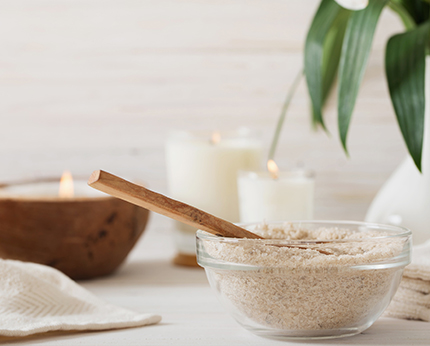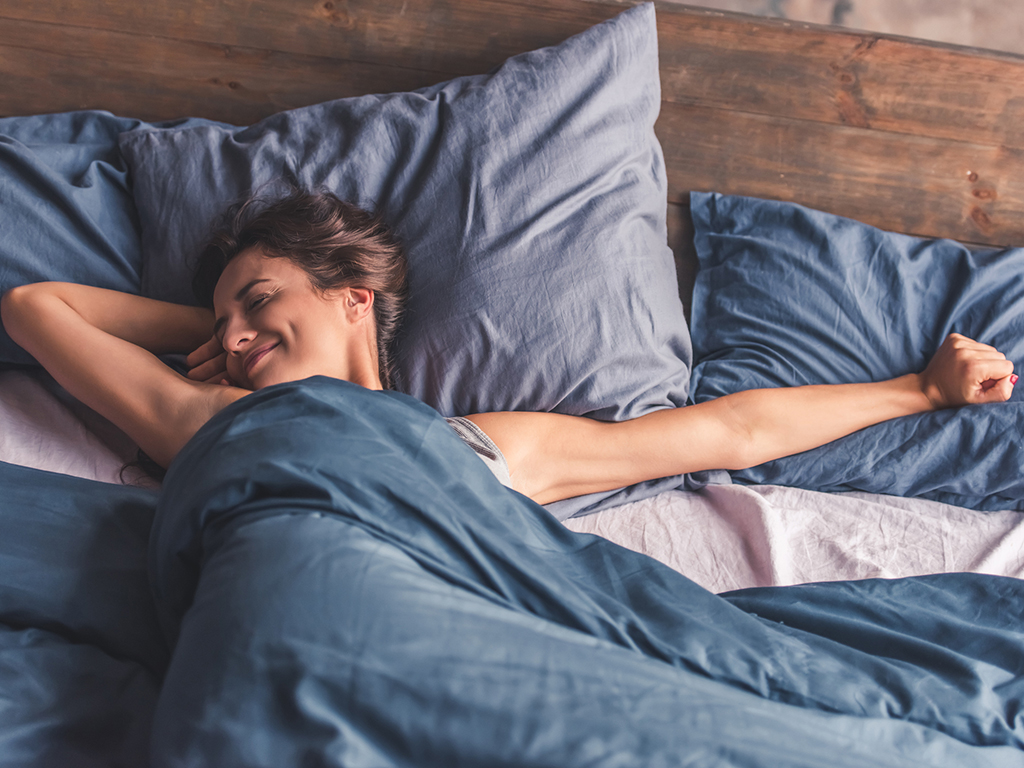Avoid Stimulants
- Limit the amount of stimulants (caffeine, nicotine, alcohol, cola drinks, dark chocolate, even some cold and flu remedies) consumed during the day and especially close to bedtime. If sensitive to caffeine avoid it after 12 noon.
- Stimulants make it harder for the brain to achieve a state of relaxation needed for sleep and consumption can impair sleep for many hours. Whilst most people think that alcohol is a sedative, it actually has a stimulating effect.

Minimise Tension and Anxiety
- Avoid anxiety-provoking activities close to bedtime, such as paying bills, checking emails, watching stimulating television or engaging in difficult conversations.
- Reduce use of light-emitting technology, such as TVs, computers or mobile phones before going to bed as these emit light that will suppress melatonin production, which can hamper the ability to fall asleep. Ideally switch off these gadgets off at least one hour prior to bedtime.
- Avoid Vigorous Exercise: Avoid vigorous exercise during the two hours prior to sleep. Exercising early in the day for at least 30 minutes per day can help improve your sleep
- Avoid eating large meals. Avoid eating large meals before bed. Indigestion can make falling asleep difficult. Finish all eating at least 3 hours prior to going to sleep
- Avoid drinking more than ½ pint of fluid before going to bed
- Avoid drinking alcohol at night as whilst you may think it has a calming effect it can lead to disturbed and restless sleep
Sleep Planning
- Aim for 8½ to 9 hours in bed and ideally aim to go to sleep and wake up at the same time each day as this will help train your biological clock.
- Avoid getting in bed after midnight as “late” sleep is not as beneficial as “early” sleep.
- Avoid “naps” longer than 45 minutes during the day.
- Take a hot salt/ aromatherapy bath, ideally 90 to 120 minutes before bedtime as this will increase your core body temperature and will abruptly drop when you get out of the bath, signalling to your body that you are ready for sleep. A hot bath also relaxes muscles and reduces tension.
- Add 1-2 cups Epsom salts (magnesium sulfate absorbed through the skin is very relaxing) and ½ to 1 cup baking soda (sodium bicarbonate which is alkalising to a stressed out body) to 10 drops lavender oil
- There are many relaxing yoga or mindful breathing CDs or DVDs available to aid relaxation before bedtime. Try listening to classical music before bed.
- Consider ½ hour exposure to a blue or 10,000 lux bright light (first thing in the morning) if you are going to bed too late and want to shift to an earlier bedtime.
Strategies to use with Trouble Falling Asleep or Staying Asleep
- Consider reading a good neutral book under low light to help with falling asleep.
- Don’t stay in bed more than 20-30 minutes trying to fall asleep. If you cannot sleep, leave your bedroom and go to a relaxing room other than the bedroom and read or do a relaxation technique (e.g. meditation).
- If you awaken early because of recurrent thoughts, try writing them in a journal. If this does not help, consider counselling.
- Eat a healthy, well balanced snack 1-2 hours before bed to maintain blood-sugar levels during the night of protein, healthy fat and complex carbohydrate – oat cake, grapes & cottage cheese or apple and walnuts.

Bedroom Environment and Preparation
- Cover your windows with blackout blinds / curtains to ensure complete darkness as even the tiniest bit of light in the room (from a clock or TV standby light) can disrupt your pineal gland’s production of the hormone melatonin and the melatonin precursor serotonin, thereby disrupting your sleep cycle.
- Do not use an electric blanket due to their associated health risks
- Refrain from turning on any light during the night, even when getting up to go to the bathroom. Whether you have the light on for an hour or just a second the effect is the same and your melatonin pump doesn’t turn back on the light is turned off. If you have to use a light, install “low blue” light bulbs in your bedroom and bathroom which will not suppress melatonin production.
- Consider an eye mask when trying to sleep or if you awaken too early because of light.
- Decrease irritating noises in your space by closing windows, removing ticking clocks. Use ear plugs if there is noise.
- Keep the temperature in your bedroom at or below 21ºC (70ºF). Studies show that the optimal room temperature for sleep is quite cool, between 15.5º to 20ºC (60º to 68º F). Try an air filter / purifier to ensure that your bedroom air is clean. A bedroom which is too cool or too hot can lead to restless sleep.
- Check your bedroom for electromagnetic fields (EMFs). These can disrupt your pineal gland’s production of melatonin and serotonin, and may have other negative effects as well. To do this, you need a gauss meter which can be found online. (see: emfuk.com/more.html). Possible sources of electrical fields include: electrical outlets, wi-fi, clocks/clock radios, stereos and computers. If these devices must be used, keep them as far away from your bed as possible and definitely away from your head, preferably at least three feet away. Mobile phones, cordless phones and their charging stations should ideally be kept three rooms away from your bedroom to prevent harmful EMF’s.
- Consider using a “side sleeper” pillow for under your neck when sleeping on your side or a body pillow to hug and put between your knees to align your back and shoulders at night
- Consider replacing your pillows with hypoallergenic pillows. Use ultrafine allergy pillow and mattress covers. Sleep on the highest quality bed linens you can afford.
REFERENCES
Frost, S (2015) The Dangers of Electric Blankets [Online]. Available at: https://www.livestrong.com/article/150091-the-dangers-of-electric-blankets/
Harvard Medical School (2014) Consequences of insufficient sleep. [Online]. Available at: http://healthysleep.med.harvard.edu/healthy/matters/consequences
Life Extension (2014). Insomnia. [Online]. Available at: https://www.lef.org/protocols/lifestyle_longevity/insomnia_01.htm
Mercola (2013) Tips for setting your internal body clock and sleeping better. [Online] Available at:
Mortgenthaler, T. (2012) I’m having trouble sleeping lately. Does this increase my chance of getting sick? [Online]. Available at: http://www.mayoclinic.com/health/lack-of-sleep/AN02065



